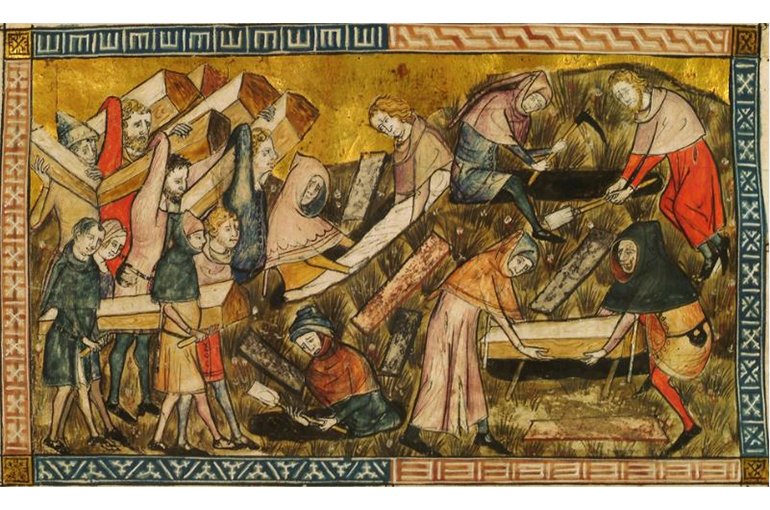PhD defence Joris Roosen: The Black Death and recurring plague during the late Middle Ages in the County of Hainaut

On 23 October Joris Roosen (Economic and Social History) defends his dissertation titled The Black Death and recurring plague during the late Middle Ages in the County of Hainaut at the University Hall.

The Black Death
Few historical relationships are as intimate or disruptive as the one between humans and infectious disease. The main example of this is the mid-fourteenth century Black Death, which killed around half the European population. In his research, Roosen asks if medieval societies were simply at the mercy of plague, or if they could stimulate demographic recovery, even in the wake of the Black Death.
Recovery
Roosen's research focuses on the county of Hainaut. His analyses demonstrate that even regions with very similar mortality rates through the ages show different patterns of demographic recovery after the Black Death. This leads to the conclusion that the long term consequences of an infectious disease, even one as deadly as the Black Death, are largely in the control of a society. The choices that we make as people determine the demographic and economic recovery of a region, not the mortality of a disease in itself.
- Start date and time
- End date and time
- Location
- University Hall, Domplein 29, Utrecht & online (link)
- PhD candidate
- Joris Roosen
- Dissertation
- The Black Death and recurring plague during the late Middle Ages in the County of Hainaut
- PhD supervisor(s)
- Prof. A.F. Heerma van Voss

